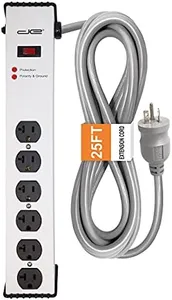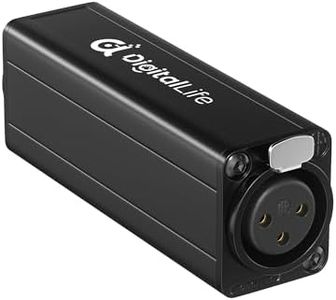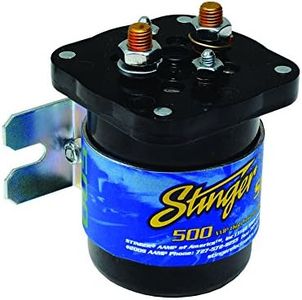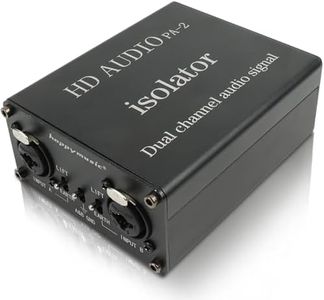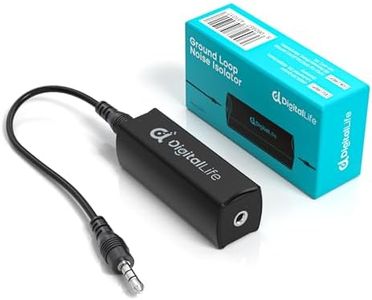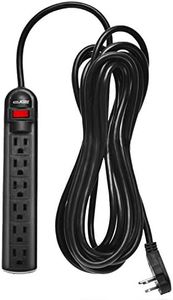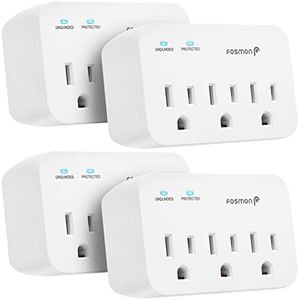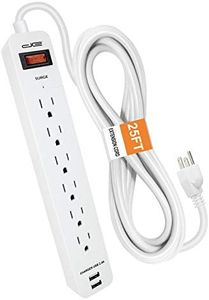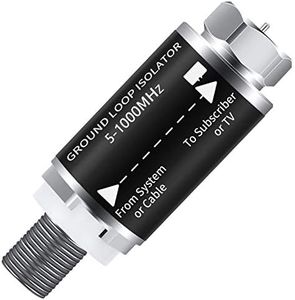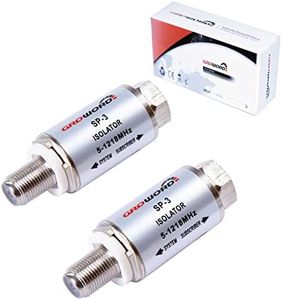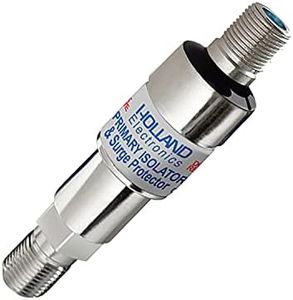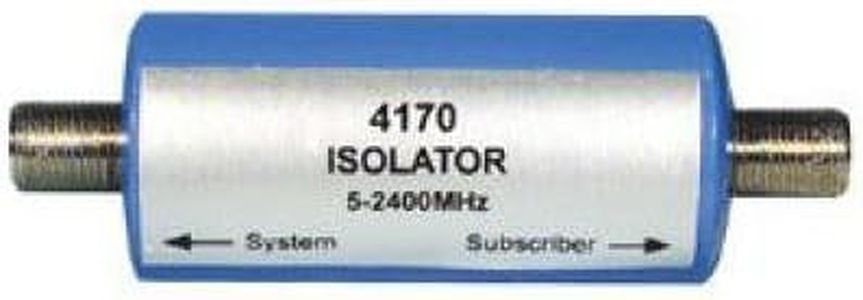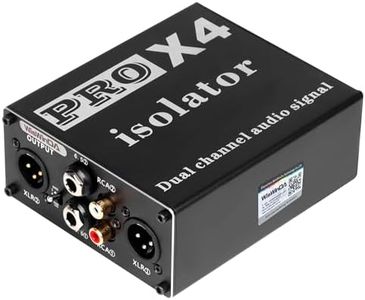We Use CookiesWe use cookies to enhance the security, performance,
functionality and for analytical and promotional activities. By continuing to browse this site you
are agreeing to our privacy policy
10 Best Ground Loop Isolators 2025 in the United States
How do we rank products for you?
Our technology thoroughly searches through the online shopping world, reviewing hundreds of sites. We then process and analyze this information, updating in real-time to bring you the latest top-rated products. This way, you always get the best and most current options available.

Buying Guide for the Best Ground Loop Isolators
When choosing a ground loop isolator, it's important to understand that this device is designed to eliminate unwanted noise or hum in audio systems caused by ground loops. Ground loops occur when there are multiple ground connections in an audio system, leading to interference. A ground loop isolator helps to break this loop and ensure a clean audio signal. To pick the right ground loop isolator for your needs, you should consider several key specifications that will determine its effectiveness and compatibility with your audio setup.Frequency ResponseFrequency response refers to the range of frequencies that the ground loop isolator can effectively handle without distortion. This is important because it ensures that the entire audio spectrum is transmitted clearly. A wider frequency response range (e.g., 20 Hz to 20 kHz) is generally better as it covers the full range of human hearing. If you are using the isolator for high-fidelity audio equipment, look for a model with a wide frequency response. For basic applications, a narrower range may suffice.
Impedance MatchingImpedance matching is the ability of the ground loop isolator to match the impedance of the connected devices. This is crucial for maintaining signal integrity and preventing signal loss. Impedance is measured in ohms (Ω). Most consumer audio equipment has an impedance of around 600 ohms, while professional equipment may vary. Ensure that the ground loop isolator you choose matches the impedance of your audio devices to avoid any degradation in sound quality.
Connector TypesConnector types refer to the physical connectors used to connect the ground loop isolator to your audio equipment. Common connectors include RCA, 3.5mm (aux), and XLR. The type of connector you need will depend on the input and output ports of your audio devices. For example, if you are connecting a car stereo, you might need RCA connectors, while professional audio equipment might require XLR connectors. Choose a ground loop isolator with the appropriate connectors for your setup to ensure compatibility.
Signal-to-Noise Ratio (SNR)Signal-to-noise ratio (SNR) measures the level of the desired signal compared to the level of background noise. A higher SNR indicates a cleaner signal with less noise. This is important for achieving high-quality audio output. SNR is typically measured in decibels (dB). For high-fidelity audio systems, look for a ground loop isolator with a high SNR (e.g., 90 dB or higher). For less critical applications, a lower SNR may be acceptable.
Build QualityBuild quality refers to the materials and construction of the ground loop isolator. A well-built isolator will be more durable and provide better performance over time. Look for isolators with sturdy casings, high-quality connectors, and good internal components. If you plan to use the isolator in a professional or demanding environment, prioritize models with robust build quality to ensure longevity and reliability.
Most Popular Categories Right Now
